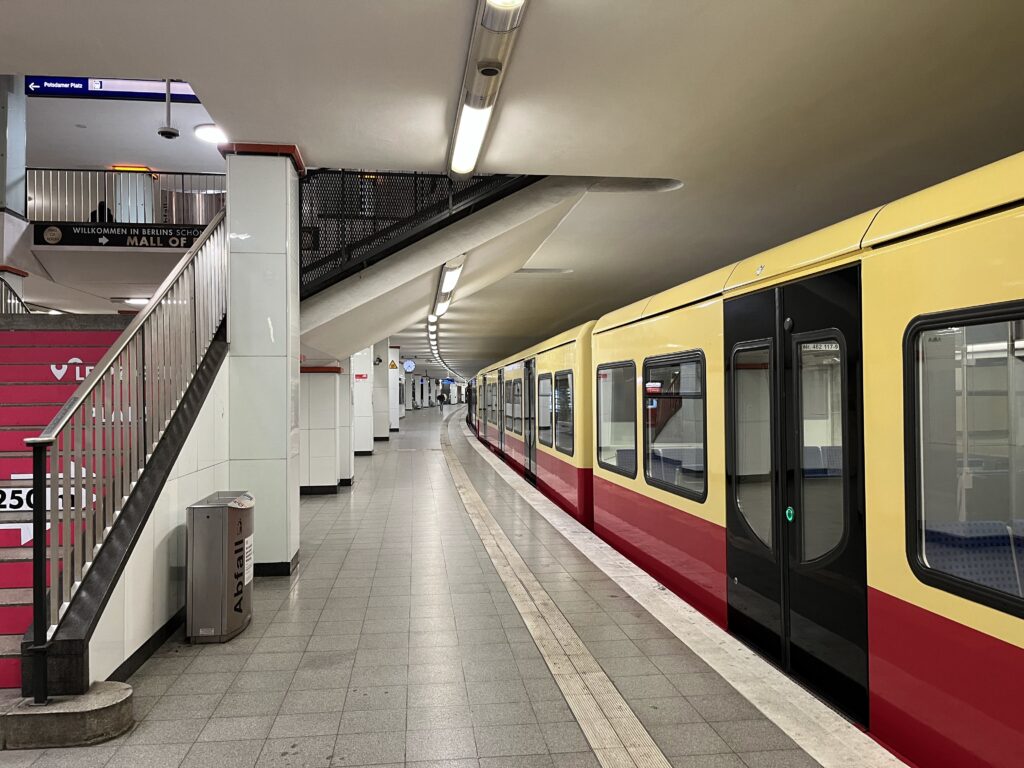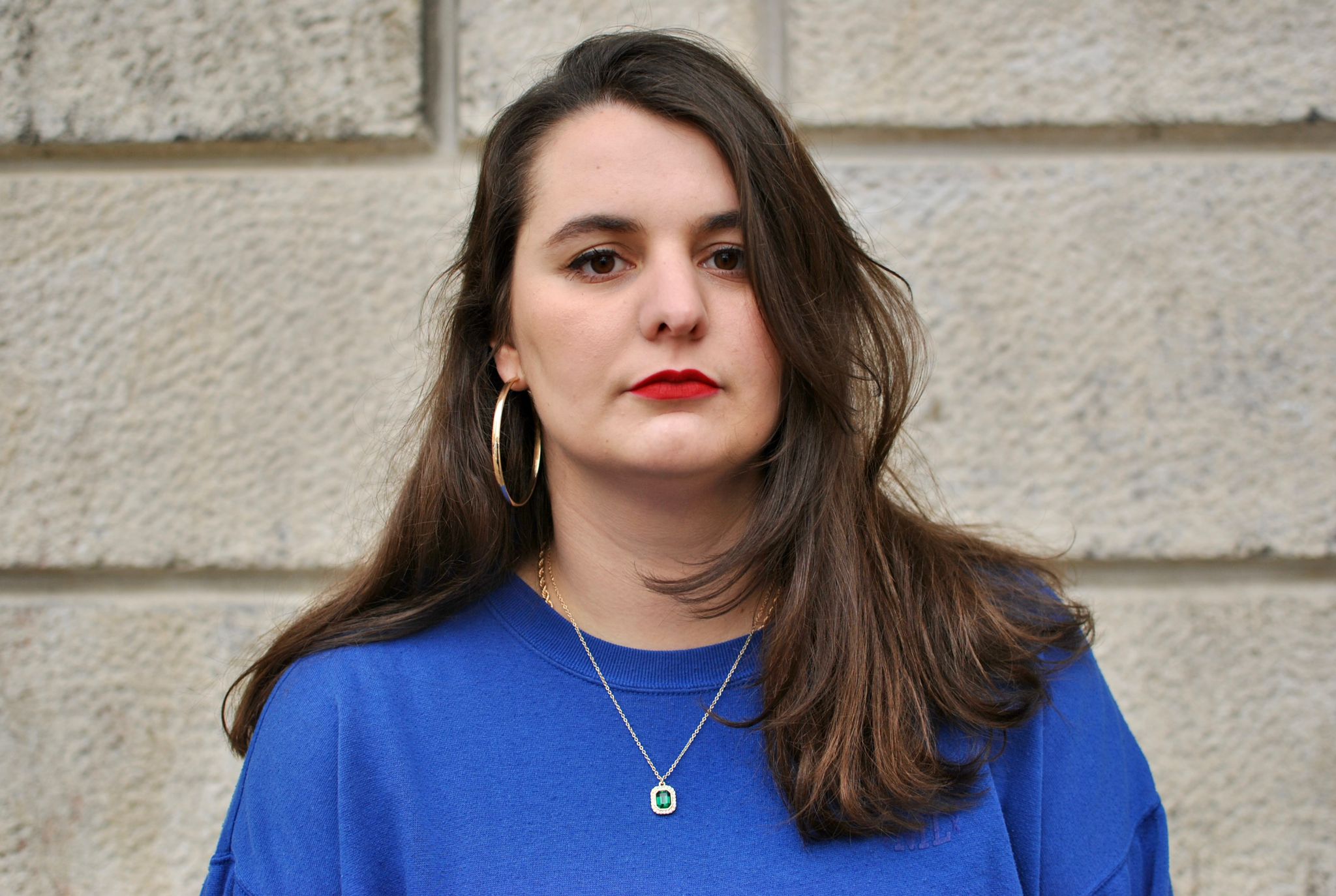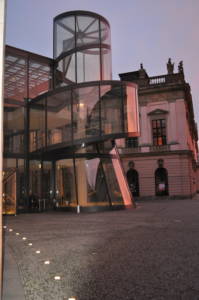Vietnamese-German writer KHUÊ PHẠM recently released her first novel Brothers and Ghosts in the US. Following a virtual classroom visit to the German department of Amherst College, she talks to Assistant Professor JONAS ROSENBRUECK about Donald Trump and the role of writers in times of right-wing populism.
Jonas Rosenbrück (JR): Let’s start with the question of whose story gets told. Your novel and other books coming out in German recently seem to challenge the white, male-dominated mainstream of the German literary world. How do you see your position within this development?
Khuê Phạm (KP): In Germany, I’m part of a generation of writers who come from immigrant families and who, through their work, write about the many faces of Germany today. My book was the first German novel from the Vietnamese diaspora over here, and I was unsure how readers would take to it. I was surprised and touched when the book did very well. At the same time, the traditional German literary canon is mainly based on male, white writers who are dead (laughs). Why not move on?
JR: Your novel Brothers and Ghosts is largely set in the US, which reminded me of the many German books that look at America as a place of projection and self-discovery. From Karl May and Franz Kafka to Christa Wolf, there is a long tradition of German authors writing about the US. How do you relate to that?
KP: For Germany, the United States has been a country of hopes and dreams for many years. And it has been for me too. I have relatives in California, whom I’ve been visiting since I was a kid. I was always fascinated by the way that they were living in Little Saigon—it seemed so easy. I wanted to have that longing in the book, I wanted to describe the contrast between the US and Germany as immigration countries. For a long time, I thought that the US was much more open towards people who have a foreign name or an accent, believing that this was the way forward. Now that Donald Trump has been elected for a second time, I’m not so sure anymore.
…the traditional German literary canon is mainly based on male, white writers who are dead. Why not move on?”
JR: The backlash against immigration is building everywhere. How do you see your own role as a writer in light of that?
KP: Like many, I’m deeply disappointed that Donald Trump gets to rule for another four years. It will have a huge impact on the world, weakening those who believe in a liberal, multicultural society. In Germany, we have the AfD on the rise and a government that recently collapsed, so we need to vote again in late February; Italy is governed by Giorgia Meloni, and France is dominated by Marine Le Pen; the list goes on. The populists have in common that they work with clichés and projections of fear. When Trump says “They eat the cats and dogs,” he paints a whole group of people as uncivilized, which is a deeply racist motif. So it is important to take agency and tell your own story to regain your humanity. The more the right is on the rise, the more important it becomes to hear, read, and write those other stories. I’m an author, so this is my way of fighting back.
For a long time, I thought that the US was much more open towards people who have a foreign name or an accent, believing that this was the way forward. Now that Donald Trump has been elected for a second time, I’m not so sure anymore.”
JR: Your novel opens with Kiều, the main character, saying that she’s unable to pronounce her own name, which is why she tells everyone to simply call her Kim. What role do names play in articulating feelings of alienation?
KP: This is a story about a young woman with a Vietnamese background that she’s not 100% comfortable with. Vietnamese names are quite complicated, so if you grow up in a Western country like her, you always encounter problems. When I went to school in Germany, people would wonder how to pronounce Khuê, and they didn’t know if it was my first or last name. It remains a bit of an open wound, so I wanted to put it in the book. It starts with the question of names, and it ends with it. After the novel came out, quite a lot of readers told me that they knew the problem. For me, that was very comforting to hear.
JR: There is an element in your work that feels to me, as a literary scholar, like a reconfiguration of certain elements of the German tradition. It concerns the formal structure of your novel, which as a Generationenroman (novel of generations), tells the story of 30-year-old Kiều, as well as her father Minh, who becomes a communist as a student, while his brother Sơn grows up to be fiercely anti-communist and later becomes a supporter of Donald Trump.
KP: German family sagas like Buddebrooks by Thomas Mann or Eugen Ruge`s In Times of Fading Light have been important inspirations for Brothers and Ghosts because they describe long-term changes through the prism of a family. The Generationenroman is a great way of exploring complex biographies and contrasting them with each other—I wrote my book out of the impulse to describe how ideologies divide two brothers who were once close. Do they manage to bridge the divisions between them? Or do they simply let them fester and harden? The structure of the Generationenroman adds to the dramatic tension: As a reader, you move between very different scenes, characters, and countries, which creates an interesting reading experience.
JR: I noticed that your writing pays a lot of attention to the senses. There are these beautiful descriptions of smells, tastes, colors, and sounds, and you have a funny passage where you write that Americans say, “I love you,” whereas Vietnamese people will say, “Have you eaten yet?”.
KP: The novel is set in three different countries and covers several decades, starting from the late sixties until the present day. I really wanted to give my readers a sense of those times and places, almost as if they were there. Using my background as a journalist, I traveled to Vietnam, the US, and Cambodia, and conducted interviews with my relatives and people who have experienced the war and the following years. They gave me a lot of details, for certain types of food, dress, and even a particular brand of cigarettes used in Cambodia to pay for smugglers. With these details, I created scenes for my readers to immerse themselves in. Hopefully, this helps them understand the world of my novel a bit better—I know that many readers may not be familiar with it.
JR: You recently came to my class and we spoke about how the title of your novel changed from the German original (Wo auch immer ihr seid, literally ´Wherever you are´) to the English edition (Brothers and Ghosts). What was it like to encounter yourself in translation?
KP: It has been an unexpected journey. As we discussed, it’s rare for a German author to be published in English. The two translators of my book, Daryl Lindsey and Charles Hawley, have been working with me for a long time, but this was their first literary translation. We looked closely at the rhythm of the language, the flow of sentences, the sound of the words. We had to find a new voice. After working on it over several months, I felt that even though the English translation is now further away from the German original, it sounds more like the book I would have written in English. The change in the title is a good example: If we had used the literal translation, it would have been a common phrase in English, which would not have worked on the cover of a novel.
JR: Brothers and Ghosts was published in the UK, Australia and the US. What has it been like to see your story travel around the world?
KP: The biggest gift of publishing an English version is that it has connected me with a lot of new people in other countries. The book serves as a bridge, especially to the Asian community in the US. Talking to Vietnamese-American readers and writers made me realize that even though we have grown up in different places, we have a lot of things in common: a drive to explore the trauma of the Vietnam War, a very ambivalent relationship to the generation of our parents. This was quite surprising.
JR: The novel was also adapted to a piece of dance theatre, KIM, which recently toured in Taiwan and Germany. Did your sense of your story change in the process of moving it from the written word onto the stage?
KP: Writing a novel is a bit like giving birth: You create something and then it’s out in the world, and you have limited influence on what happens next. Brothers and Ghosts started with the idea to turn the story of my family into a novel, and after its release, I saw that other people read it through the lens of their own experiences and questions. They made it their own.
Then I was approached by a Taiwanese director, who has been working in Germany doing documentary theater for some time. She brought in five other performers who also have an Asian background and who share their own story of growing up between East and West on stage. And all these experiences are creatively, artistically expressed through dance or rap or video documentary, interwoven with key scenes from the book. So again, it’s a new being.
JR: I’m curious what you think about the genre of autofiction. You’ve spoken in other interviews about admiring, for instance, Annie Ernaux. What does autofictional writing allow you to do and where are its limits? People sometimes worry about a “fetishization” of authenticity.
KP: I also love Tove Ditlevsen, the author of the Copenhagen Trilogy. I never thought about Denmark in the early 20th century before, but the way she describes her own childhood, her rise as a writer, and her addictions, was so powerful. And I admire Édouard Louis’ Change, in which he writes about being a gay man from a working-class background. Again an experience that I don’t know personally, but which I got drawn into through his poetic and unsparing portrayal of himself. I feel that autofiction is particularly powerful in telling stories that we would not read otherwise, stories that are perhaps more on the margins.
In German literary criticism, there are some who say that most of the autofiction from immigrant writers is “only people telling their own story”, implying that this is not “real” literature. I feel that this is a way of talking down stories that would otherwise not be heard.
JR: Tell us what you’re working on now. What’s the next project? Are there connections to Brothers and Ghosts or do you think of it as a separate project?
KP: I’m working on my second novel now, which will be quite different. I’m telling the story of a young woman who returns to the dark place of her childhood as she becomes a mother. It’s set on the outskirts of Berlin, on the border between East and West. It’s a more German story, centering on what it means to be a woman: How does your identity change when you have a child and suddenly find yourself in a new role you never wanted? It’s also an exploration of returning to the place you came from. So it picks up on some of the questions of Brothers and Ghosts, but it’s a different story overall.
JR: We’re excited to read it.
KP: Me, too (both laugh). I’m starting chapter three now.









 Berlin, Germany
Berlin, Germany
 Rügen, Germany
Rügen, Germany




